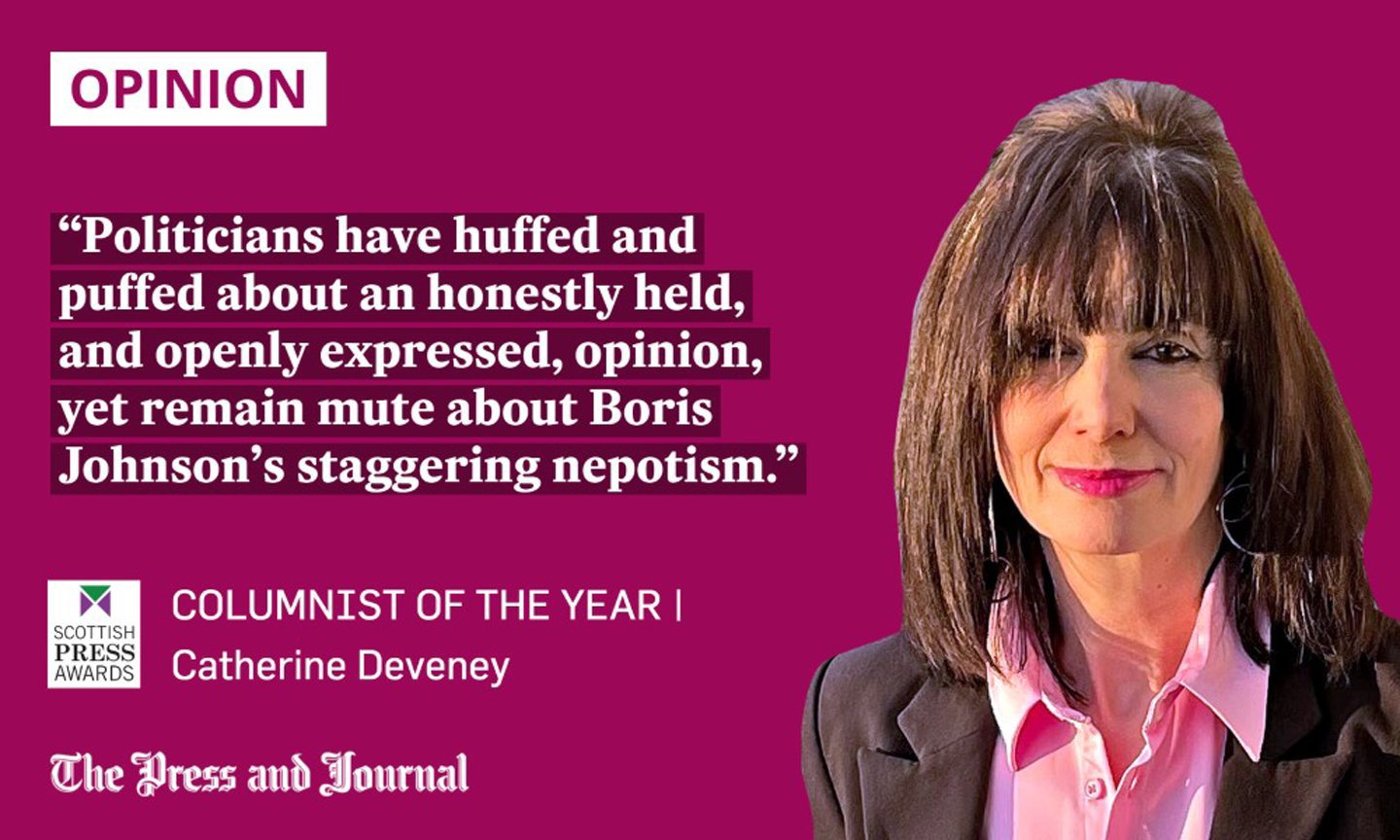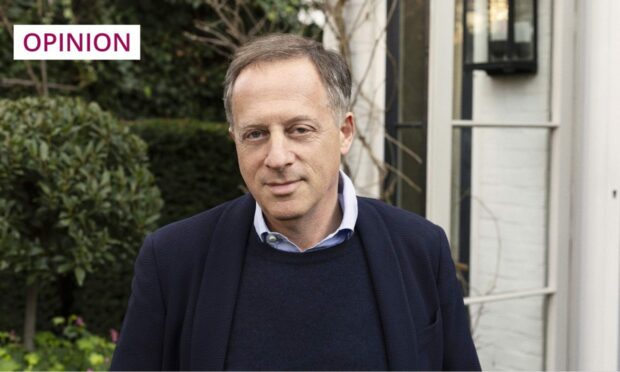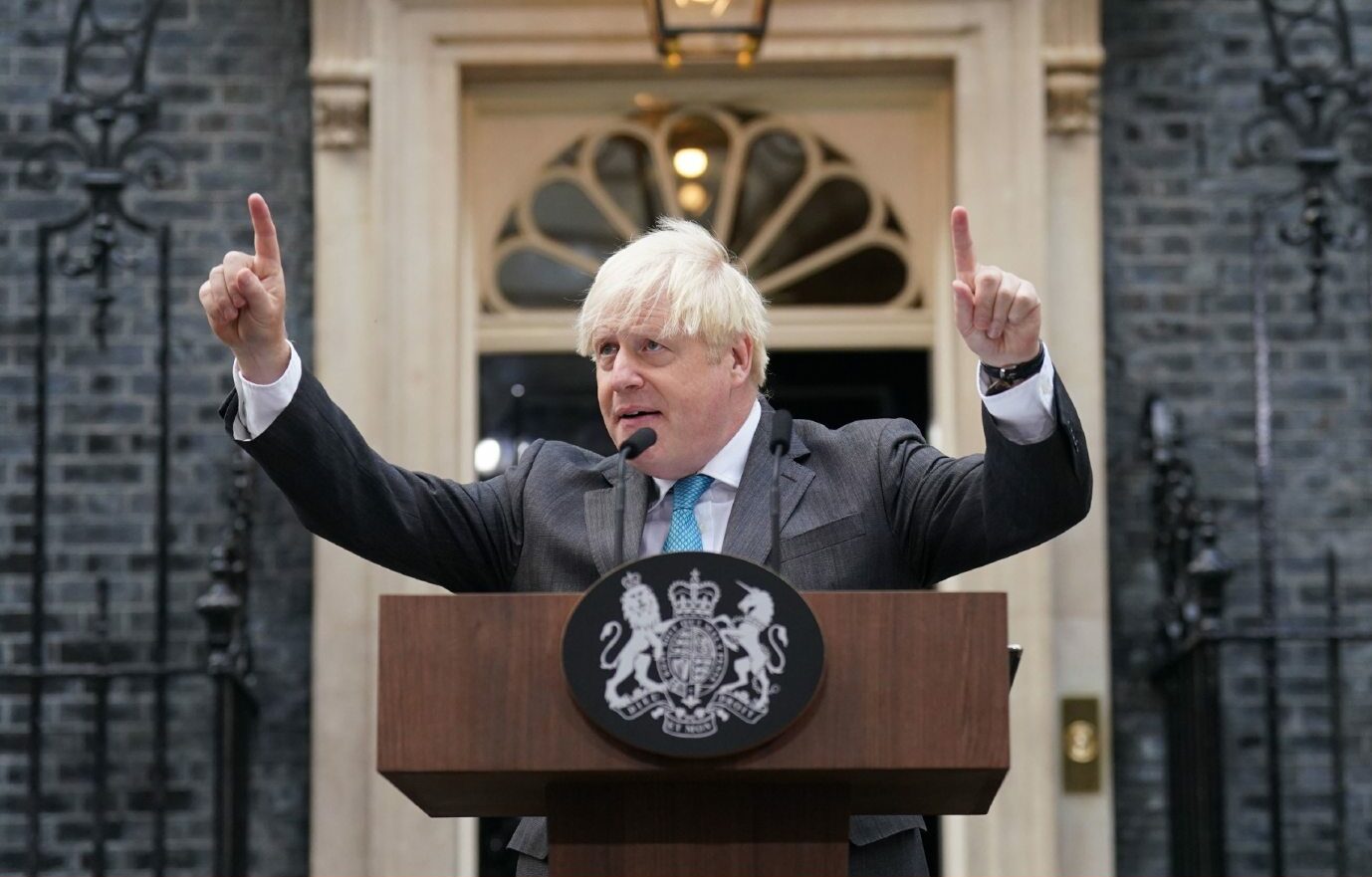Gary Lineker is not professionally holding power to account. But he should certainly be allowed to privately, writes Catherine Deveney.
In the catalogue of fairy tales – Hans Christian Andersen, Brothers Grimm et al – mythical creatures and fantastic legends abound: fairy princesses, elves and goblins, mermaids and water sprites…
But there is a lesser-known modern fairy tale that requires even more gullibility on the part of the reader. It’s called “The Myth of BBC Neutrality”. In this particular story, the hero is the employee who has no opinions whatsoever and sacrifices any personal interpretation of the world around them on the altar of corporate neutrality. Bit far-fetched, that one. Easier to believe in fairies at the bottom of the garden.
The recent Gary Lineker furore, in which the sports presenter said the language being used about refugees was reminiscent of 1930s Germany, is a manipulated row by politicians who want the BBC to be their own secret mouthpiece, but indulge in faux outrage when an employee says something they don’t like.
Boris Johnson, for example, thinks it’s acceptable to have secret advice on a financial loan from the very person he appoints as BBC chairman. Indeed, it’s been acceptable for generations to appoint to positions of BBC power on the basis of political allegiance, but to expect ordinary employees to have none. In other words, it’s fine to have a political opinion which you pretend you don’t have, but not fine to express one that you openly do.

Is neutrality even desirable – or is truth the gold standard? Doing or saying nothing is always doing or saying something. Inaction has repercussions. It is secrecy, and the pretence of some non-existent, neutral objectivity, that is toxic in public life, not transparently held opinion.
The best thing to come out of the Lineker saga is the worker solidarity it provoked, the recalibration of political power. BBC management behaved ridiculously; politicians behaved maliciously. Workers said no to both.
How much weight should neutrality hold?
Journalism is not a neutral game. The way you interpret facts, the details you consider important, the voices you give most weight to shape your story, and it’s important that the public understand that. Read the Daily Mail next to the Guardian, and you’ll think you are reading about two different universes.
But Gary Lineker is not even a journalist. He’s not interviewing politicians, or scrutinising legislation. Why should his right to free speech be removed to prop up some antiquated, Reithian notion that working at the BBC requires political castration? Lineker is not professionally holding power to account. But he should certainly be allowed to privately.
After a surreal few days, I’m delighted that we have navigated a way through this. I want to thank you all for the incredible support, particularly my colleagues at BBC Sport, for the remarkable show of solidarity. Football is a team game but their backing was overwhelming. 1/4
— Gary Lineker 💙💛 (@GaryLineker) March 13, 2023
All journalists should aim to be fair, honest and accurate. They can do that whatever their political leanings. But, in any case, accepting information from someone whose views you know allows you to interpret the information they give you more accurately. The idea that not declaring a political affiliation means you don’t have one is ridiculous. It’s a myth the BBC have promulgated for years.
Several weeks ago, I wrote about a Jewish Holocaust survivor who challenged Home Secretary Suella Braverman’s language, saying, essentially, what Lineker did. Lineker has been ridiculed for his opinion, and patronised by Foreign Secretary James Cleverly, who suggested he reread his history books.
But Lineker likened current language to the build-up of hatred in the 1930s, not the culmination of it in the 1940s. What weight should “neutrality” be given here? Clearly, the Holocaust survivor is not neutral – but I value her view over Cleverly’s, because of her experience.
The BBC does not belong to Westminster. It belongs to us
The UK Government’s own figures show that 45,000 refugees attempted to cross the channel last year. Why, in a population of almost 68 million, has Suella Braverman named this her “top priority” when we are dealing with a cost-of-living crisis, an energy crisis, an environmental crisis, a broken NHS and a struggling education system?
The government claims this is about tackling criminal gangs who exploit refugees, rather than about refugees themselves. Really? If exploitation is the concern, why don’t they expend similar energy tackling the oil companies who are fleecing the entire population? Their record-breaking profits during a fuel crisis are obscene and exploitative. The government calls it free market economics. I call it corporate criminality.
This government has lost moral authority. It is now indulging in displacement activity. Politicians have huffed and puffed about an honestly held, and openly expressed, opinion, yet remain mute about Boris Johnson’s staggering nepotism. He has nominated his father for a knighthood – presumably for services to dad-hood, though not to husband-hood, because there is that little matter of Stanley Johnson’s wife’s nose getting broken in a domestic violence incident. Sir What?
The BBC does not belong to Westminster. It belongs to us. It’s not neutrality that is critical for society, but informed interpretation. Let’s not drive transparent opinion and free speech underground, for these are the tools of interpretation, the things we use to analyse information and assess truth.
Whether politicians like it or not, objectivity, like beauty, is always going to be partly in the eye of the beholder.
Catherine Deveney is an award-winning investigative journalist, novelist and television presenter, and Scottish Newspaper Columnist of the Year 2022


Conversation